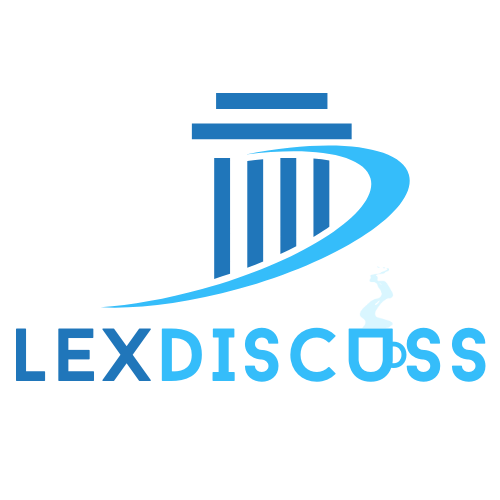Introduction and Background:
Can you tell us about your journey in the legal field and how you became a partner at Lead Law Law Offices?
My legal path began with a desire to serve and a fascination with the intricacies of the law. Through dedication and experience, I honed my skills and gained the trust of clients, colleagues and my seniors in the first couple of years. Driven by a vision to build a research, quality and client focused firm, I founded LeadLaw Law Offices which is a journey and a chance to collaborate with exceptional legal minds.
What inspired you to specialize in infrastructure law and project finance?
The crucial role infrastructure plays in a nation’s development, especially in India (where the nearby streets get a fresh layer of brittle bitumen just prior to each election, just joking but serious too), sparked my interest in this sector. Project finance, with its complex structuring and risk management, presented a stimulating challenge, and I relished the opportunity to contribute to building India’s future while getting an opportunity to be involved in a field of practice which is more practical than any law book can ever teach.
Private Equity and Structuring Models:
What role does private equity play in financing infrastructure projects?
Private equity (PE) acts as a crucial source of funding for infrastructure projects, bridging the gap between traditional (regulated) lenders and the project needs. We structure deals to balance the risk-reward profile for both investors and project developers.
How do you structure these deals and could you explain the concept of “structuring of private equity models”?
Structuring involves meticulously crafting the legal and financial framework for the project. This encompasses aspects like defining investor entry and exit points, determining security packages, and establishing clear channels of communication between all stakeholders.
Contributions to Legal Journals:
Could you share some of the contributions you have made to Legal Journals, and your writings for your firm?
I haven’t personally been much involved in the last decade. The most recent publication was on the Issue of Cross-Collateralisation, an issue well discussed by the Hon’ble Delhi HC in an unreported 2020 matter. However, I keep writing practice notes and case summaries for internal circulation within the firm. There is a very ‘humble’ project in the field of project finance which I have initiated with a few colleagues which would be helpful for the practitioners in our field.
Justice and Advocacy:
In your experience, how can legal professionals contribute to enhancing justice within educational institutions?
Justice in Education: Legal professionals can champion justice within educational institutions by promoting awareness of student rights and advocating for fair grievance redressal mechanisms.
What initiatives have you seen that address issues like bullying and gender bias in schools?
Initiatives like workshops on bullying prevention and unconscious bias training can equip students, educators, and administrators with the tools to recognize and address issues like bullying and gender bias. By fostering inclusive and respectful environments, we can nurture a just learning ecosystem.
Generative AI in Legal Practice:
How can generative AI tools be leveraged in legal research and case analysis?
Generative AI tools can be powerful assets in legal research by enabling efficient identification of relevant case law and legal precedents. AI-powered analysis can highlight critical patterns and arguments within vast amounts of data, saving time and enhancing the precision of legal research.
Are there any specific use cases where AI-generated content has been successfully applied in legal proceedings?
AI-generated content has applications in drafting legal documents like contracts or standardized pleadings by sifting through and identifying repetitions and conflicts in the same or related agreements. However, it’s crucial to remember that AI is a TOOL, and human expertise remains irreplaceable in areas like legal strategy and judgment.
What ethical considerations should legal professionals keep in mind when using AI-generated content?
When using AI-generated content, it’s imperative to ensure accuracy, avoiding bias in the underlying data sets. Transparency is key – legal professionals must disclose the use of AI tools and exercise independent judgment before relying on AI-generated outputs.
Rapid Fire Round:
Favourite Legal Book:
Which legal book has had the most significant impact on your career?
“The Pentateuch” being the first 5 books of the Holy Bible. To imagine the institution of the Ten Commandments and thereafter, the physical breaking of the stone tablets on which the Tens were etched signifies the tussle between law to bring some order in the society and the resistance of the society to an order. It has been a guiding light, emphasizing the importance of mutual gain in achieving successful outcomes through the institution of law.
Morning Ritual:
What’s the first thing you do when you wake up in the morning?
I begin my day with a dose of quiet reflection, followed by a brisk walk to energize both body and mind.
Hidden Talent:
Is there a skill or hobby that most people don’t know about?
While the rendering business relevant legal advise is my professional domain, I find solace in composing poetry, expressing creativity through words that evoke emotion.
Bucket List Destination:
If you could visit any place in the world, where would it be?
The mystical allure of Machu Picchu in Peru beckons me to explore its ancient ruins and immerse myself in its rich history.
Favorite Legal Movie:
A legal movie that you’d recommend to our listeners?
: “Do Ankhen Barah Hath” is an inspiring movie where the portrayal of rehabilitation of the delinquent by determination to do good is an inspiring theme for all.

